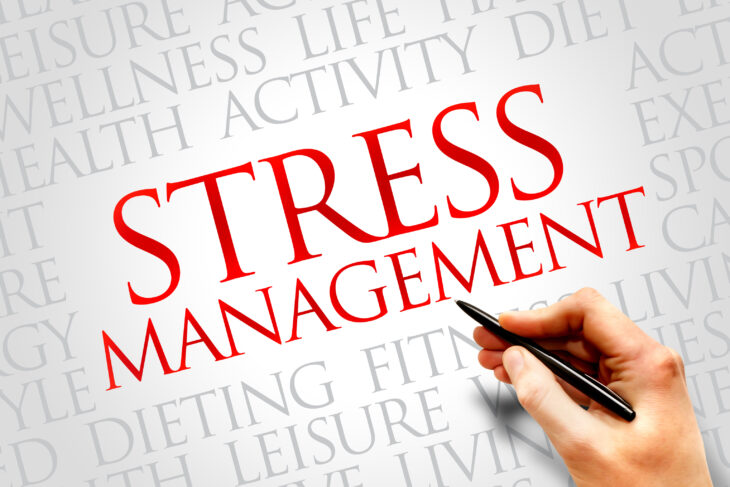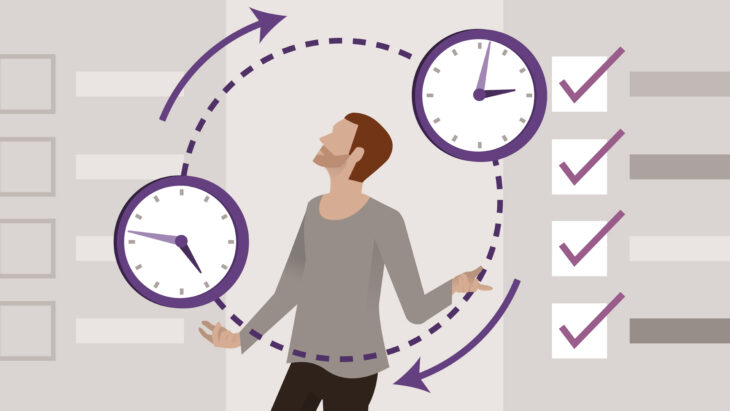It’s easy to get caught up in everything that needs to be done during the week. How can you not be stressed out with work, school, kids and finding time for yourself? External demands, such as work or family commitments and internal influences, such as what we eat and how our digestive, immunological and neurological systems function, are all factors that cause stress in the body. If you live with high levels of stress, you put your entire well-being in danger. Both your emotional and physical well-being are negatively impacted by stress. It’s tough to think clearly, perform correctly and enjoy life when you’re in this state.
It may seem that there is nothing you can do to relax. The expenses will never stop growing, the days will never get any longer and your work and family duties will never be less stressful. You do have far more control than you might believe.
Efficient stress management enables you to get out of the grasp that stress has on your life so that you are happier, healthier and productive. The end goal is to live a balanced life that includes time for work, relationships, relaxation and pleasure, as well as the perseverance to keep going when things become rough. However, there is no one-size-fits-all approach to stress management. That’s why it’s crucial to explore and find out what works best for you. The following suggestions on how to manage stress (for that needs to click here) by adopting a healthy lifestyle can help you in doing so.
Contents
1. Identifying the source

Source: abbeycommunication.com
The first stage in stress management is identifying the sources of your stress. While significant worries like switching jobs, relocating or getting a divorce are easy to recognise, pinpointing the causes of persistent stress can be challenging. It is all too easy to ignore how your own ideas, feelings and conduct contribute to everyday stress.
Sure, you may be worried about work deadlines, but the stress probably stems from your procrastination rather than your job responsibilities.
Assess your routines, attitude and excuses to determine your actual sources of stress. It will remain out of your control unless you accept responsibility for your part in creating or maintaining stress.
2. Employ the four A’s of stress management

Source: katkonsult.com
While stress is a natural nervous system response, some stressors occur at predictable times, such as during your commute to work, a meeting with your employer or family gatherings. You have two options for dealing with predicted stressors: fix the issue or change your reaction. It’s useful to remember the four A’s in any given situation: avoid, adapt, adjust or accept.
3. Exercise

Source: istockphoto.com
When you’re stressed, getting up and exercising is probably the last thing on your mind. On the other hand, physical activity is an excellent stress reliever, and you don’t have to be an athlete or spend hours in the gym to reap the benefits. Exercise releases endorphins, which make you feel good and it can also be a fantastic way to get away from your daily troubles.
While you’ll gain the most benefit from exercising for 30 minutes or more regularly, it’s fine to progressively increase your fitness level. Over the course of a day, even minor acts can add up. The first step is to get up and roam around. Here are some simple methods to fit exercise into your daily routine:
- Use the stairs
- Walk to the stores near you for groceries or other kinds of shopping
- Play outdoor games
- Walk your dog
- Dance around to your favourite music
- Practice yoga
4. Say yes to a healthy lifestyle

Source: southernarizonaurgentcare.com
-
Diet
Start your day well with breakfast and eat balanced, nutritious meals throughout the day to keep your energy levels high and your mind clear. Be attentive to what you eat because well-nourished bodies are better able to cope with stress.
-
Reduce sugar and caffeine
Caffeine and sugar provide temporary “highs” that are often followed by a slump in mood and energy. You’ll feel more relaxed and sleep better if you cut back on coffee, soft drinks, chocolate and sugary snacks in your diet.
-
Sleep well
People often undervalue the significance of having adequate sleep and relaxation. Sleep deprivation has several adverse effects that are subtle but important. Getting enough sleep isn’t one of the most common New Year’s resolutions, but it should be. A good night’s sleep fuels both your intellect and your body. You will be more stressed if you are sleepy because it may cause you to think unreasonably.
-
Avoid alcohol and drugs
Self-medicating with alcohol or drugs may provide a quick fix for stress, but the relief is temporary. Excessive or continuous use of prescribed or illegal drugs can lead to physical and mental health issues. Deal with difficulties head-on and with a clear mind, rather than avoiding or masking them.
-
Make time for leisure
You may lessen stress in your life by carving out “me” time in addition to taking charge and maintaining a positive attitude. Don’t become so engrossed in the hustle and bustle of life that you forget to look after yourself. Self-care is essential to reduce stress. You’ll be able to handle life’s stress better if you schedule time for pleasure and relaxation regularly. Make time for fun leisure activities that make you happy, be it stargazing, playing a musical instrument, reading, dancing or going out.
5. Connect with other people

Source: Medium.com
Spending meaningful time with another human being who makes you feel safe and understood is incredibly relaxing. Face-to-face interaction, in fact, sets off a chain reaction of hormones that neutralises the body’s defensive “fight-or-flight” response. It’s a natural stress reliever from nature that keeps off depression and anxiety. So, make it a point to connect with family and friends regularly and in person.
Be mindful of the fact that the people you talk to do not have to help you deal with your stress. Simply put, they must be good listeners. Also, don’t let fears of appearing weak or burdensome keep you from speaking up. The ones who care about you will appreciate your trust. It will assist in strengthening your bond even more.
6. Time management

Source: elite-academy.rs
Anxiety can be exacerbated by poor time management. It’s difficult to be calm and focused when you’re overworked and behind schedule. Additionally, you’ll be driven to avoid or minimise all of the stress-relieving activities you should be doing, such as socialising and getting adequate sleep. The good news is that there are steps you can take to improve your work-life balance.
- Don’t schedule events back-to-back or try to cram too much in one day. We all too often underestimate the length of time it will take to complete a task.
- Make a list of the things you need to complete and prioritise them. Pick the high-priority tasks first. If you have a particularly unpleasant task ahead of you, complete it as quickly as possible.
- You don’t have to do everything yourself at school, work or home. Why not delegate the duty to others if they are capable of doing so? Allow yourself to let go of the desire to be in charge of or oversee every detail.
Final thoughts…
Stress is similar to anger, wherein it is damaging and harming one’s health. Because your body produces more adrenaline and cortisol to deal with the added burden of stress, your heart rate, blood pressure and blood sugar rise when you’re persistently stressed. It’s difficult to maintain a healthy lifestyle when you’re stressed. Sleeping less, eating more and having a short fuse at work and home are all symptoms of stress. So, to stop the consequences of stress, reverse the cycle of events and focus on a healthy lifestyle.
